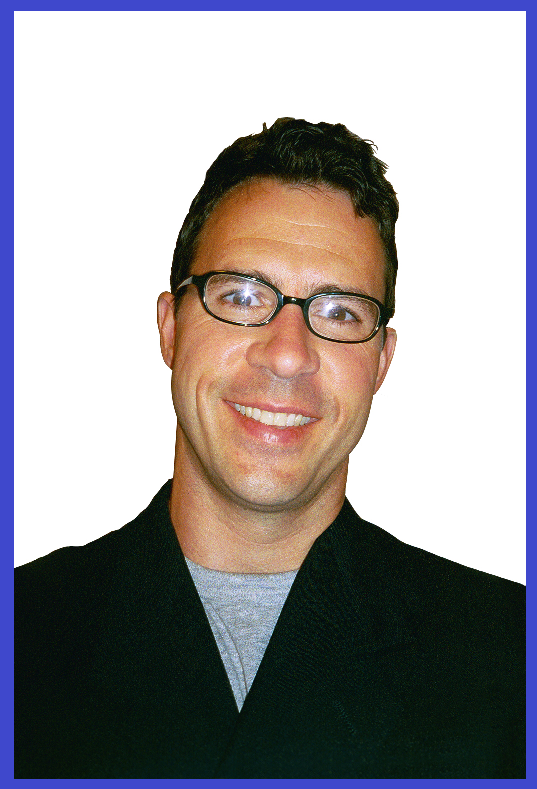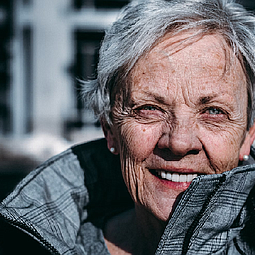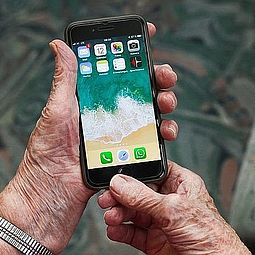Risks of Skin Cancer and How to Protect Yourself
Savvy Senior
July 31, 2022 at 7:41 p.m.
...by Jim Miller
Dear Savvy Senior,
Is skin cancer hereditary? My 63-year-old brother died of melanoma last year, and I’m wondering if I’m at higher risk.
Dear Younger,
While long-term sun exposure and sunburns are the biggest risk factors for melanoma – the deadliest form of skin cancer – having a sibling or parent with melanoma does indeed increase your risk, according to the Skin Cancer Foundation.
Each year, around 100,000 Americans are diagnosed with melanoma, and about 7,500 people will die from it. While anyone can get it, those most often diagnosed are Caucasians, age 50 and older. And those with the highest risk are people with red or blond hair, blue or green eyes, fair skin, freckles, moles, a family history of skin cancer and those who had blistering sunburns in their youth.
Skin Exams
The best way you can guard against melanoma and other skin cancers (basal and squamous cell carcinomas) is to protect yourself from the sun, and if you’re over age 50, get a full-body skin exam done by a dermatologist every year, especially if you’re high risk. Self-examinations done every month or so is also a smart way to detect early problems. Using mirrors, check the front and backside of your entire body, including the tops and undersides of your arms and hands, between your toes and the soles of your feet, your neck, scalp and buttocks.
Be on the lookout for new growths, moles that have changed, or sores that don’t heal, and follow the ABCDE rule when examining suspicious moles.
For more self-examination tips and actual pictures of what to look for, see SpotSkinCancer.org or use a skin cancer detection app like Miiskin.com, MoleMapper.org or SkinVision.com. In the spring and summer, there are also a variety of places that offer free skin cancer screenings, like the American Academy of Dermatology (spotskincancer.org) and the American Society for Dermatologic Surgery (asds.net/skincancerscreening.aspx), which offer screenings done by volunteer dermatologists across the U.S.
Sun Protection
Even though you can’t change your skin or family history, there are some proven strategies that can help you protect yourself.
For starters, when you go outside put-on broad-spectrum SPF 30, water-resistant sunscreen on both sunny and cloudy days. If you don’t like the rub-on lotions, try the continuous spray-on sunscreens which are easier to apply and re-apply and less messy. Also, seek the shade when rays are most intense – between 10am and 2pm.
You can also protect your skin by wearing a wide-brimmed hat, and long sleeves and pants when possible. The best clothing options are tightly woven fabrics that help prevent the sun’s rays from reaching your skin, or you can wash in an invisible shield sun protection into your clothes with SunGuard laundry additive (see sunguarduv.com). You can even buy a variety of lightweight clothing and hats that offer maximum UV protection in their fabric. Coolibar.com and SunPrecautions.com are two good sites that offer these products.
Treatments
If caught early, melanoma is nearly 100 percent curable. But if it’s not, the cancer can advance and spread to other parts of the body where it becomes hard to treat and can be fatal. Standard early treatment for melanoma is surgical removal. In advanced cases, however, immunotherapies and targeted therapies have shown positive results, or chemotherapy and radiation may be used.
 Jim MillerSend your senior questions to: Savvy Senior, P.O. Box 5443, Norman, OK 73070, or visit SavvySenior.org. Jim Miller is the creator of Savvy Senior, a syndicated information column for older Americans and their families. Jim is also a contributor to NBC’s Today show and the author of The Savvy Senior, The Ultimate Guide to Health, Family and Finances for Senior Citizens. He has been featured in numerous national publications, including Time, USA Today and The New York Times.
Jim MillerSend your senior questions to: Savvy Senior, P.O. Box 5443, Norman, OK 73070, or visit SavvySenior.org. Jim Miller is the creator of Savvy Senior, a syndicated information column for older Americans and their families. Jim is also a contributor to NBC’s Today show and the author of The Savvy Senior, The Ultimate Guide to Health, Family and Finances for Senior Citizens. He has been featured in numerous national publications, including Time, USA Today and The New York Times.
Is skin cancer hereditary? My 63-year-old brother died of melanoma last year, and I’m wondering if I’m at higher risk.
--Younger Sister
Dear Younger,
While long-term sun exposure and sunburns are the biggest risk factors for melanoma – the deadliest form of skin cancer – having a sibling or parent with melanoma does indeed increase your risk, according to the Skin Cancer Foundation.
Each year, around 100,000 Americans are diagnosed with melanoma, and about 7,500 people will die from it. While anyone can get it, those most often diagnosed are Caucasians, age 50 and older. And those with the highest risk are people with red or blond hair, blue or green eyes, fair skin, freckles, moles, a family history of skin cancer and those who had blistering sunburns in their youth.
Skin Exams
The best way you can guard against melanoma and other skin cancers (basal and squamous cell carcinomas) is to protect yourself from the sun, and if you’re over age 50, get a full-body skin exam done by a dermatologist every year, especially if you’re high risk. Self-examinations done every month or so is also a smart way to detect early problems. Using mirrors, check the front and backside of your entire body, including the tops and undersides of your arms and hands, between your toes and the soles of your feet, your neck, scalp and buttocks.
Be on the lookout for new growths, moles that have changed, or sores that don’t heal, and follow the ABCDE rule when examining suspicious moles.
• Asymmetry: One half of a mole doesn’t match the other.
• Border: The border is blurred or ragged.
• Color: The mole has uneven colors, often shades of brown, tan or black, with patches of pink, red, white or blue.
• Diameter: The lesion is new or at least a quarter inch in diameter.
• Evolving: The mole is changing in size, shape or color.
For more self-examination tips and actual pictures of what to look for, see SpotSkinCancer.org or use a skin cancer detection app like Miiskin.com, MoleMapper.org or SkinVision.com. In the spring and summer, there are also a variety of places that offer free skin cancer screenings, like the American Academy of Dermatology (spotskincancer.org) and the American Society for Dermatologic Surgery (asds.net/skincancerscreening.aspx), which offer screenings done by volunteer dermatologists across the U.S.
Sun Protection
Even though you can’t change your skin or family history, there are some proven strategies that can help you protect yourself.
For starters, when you go outside put-on broad-spectrum SPF 30, water-resistant sunscreen on both sunny and cloudy days. If you don’t like the rub-on lotions, try the continuous spray-on sunscreens which are easier to apply and re-apply and less messy. Also, seek the shade when rays are most intense – between 10am and 2pm.
You can also protect your skin by wearing a wide-brimmed hat, and long sleeves and pants when possible. The best clothing options are tightly woven fabrics that help prevent the sun’s rays from reaching your skin, or you can wash in an invisible shield sun protection into your clothes with SunGuard laundry additive (see sunguarduv.com). You can even buy a variety of lightweight clothing and hats that offer maximum UV protection in their fabric. Coolibar.com and SunPrecautions.com are two good sites that offer these products.
Treatments
If caught early, melanoma is nearly 100 percent curable. But if it’s not, the cancer can advance and spread to other parts of the body where it becomes hard to treat and can be fatal. Standard early treatment for melanoma is surgical removal. In advanced cases, however, immunotherapies and targeted therapies have shown positive results, or chemotherapy and radiation may be used.
 Jim Miller
Jim Miller





